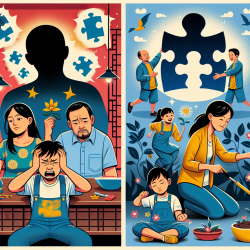Introduction
The intersection of maternal adverse childhood experiences (ACEs) and substance use during pregnancy is a critical area of research with significant implications for child health and development. A recent study titled The Effect of Maternal Adverse Childhood Experiences (ACEs) on Substance Use During Pregnancy provides valuable insights into how these experiences impact prenatal substance use, and highlights opportunities for intervention to break the cycle of trauma.
Key Findings
The study conducted a retrospective review of 222 infants and 218 mothers referred to a hospital’s child protection team (CPT) for suspected substance exposure. It found that 50.9% of these mothers reported experiencing four or more ACEs, significantly higher than the 15.2% prevalence in the general population. This group had notably higher odds of using substances, particularly cannabinoids, during pregnancy.
Implications for Practitioners
For practitioners, these findings underscore the importance of routine ACEs screening in prenatal care. Early identification of mothers at risk can facilitate timely interventions, potentially reducing the transgenerational impact of ACEs. Practitioners should consider implementing universal, nonpunitive toxicology testing for both mothers and infants at birth, as recommended by the study.
Opportunities for Further Research
While the study provides a robust analysis of the association between ACEs and prenatal substance use, further research is needed to explore the nuances of this relationship. Future studies could investigate the specific types of ACEs that most strongly predict substance use, as well as the efficacy of different intervention strategies.
Conclusion
Understanding the link between maternal ACEs and substance use during pregnancy is crucial for developing effective prevention and intervention strategies. By integrating ACEs screening into routine prenatal care, practitioners can play a pivotal role in mitigating the adverse effects of childhood trauma on future generations.
To read the original research paper, please follow this link: The Effect of Maternal Adverse Childhood Experiences (ACEs) on Substance Use During Pregnancy.










